15.08 - France’s Wine Crisis: Changing Tastes, Changing Climate—What of the future?
This FREE le Bulletin explores how important 'le vin' is to France. Global competition & climate change is putting pressure on the beloved French tradition of wine growing & drinking + new Contributor
Today at a Glance: your FREE weekly newsletter
Bonjour mes amis !
I’m so thrilled to have you back here with me today! Bienvenue !
This week, we’ll dive into:
Meet a new MyFrenchLife Magazine Contributor, writing about French wine, restaurants, and more, focusing today on the challenges facing wine.
Then, we'll discovery how you can live like a local in France! Skip the tourist traps & savor simple joys: chocolatine, parades, charming doors, animal sounds, & more…, and
Watch out for the PAID subscriber edition of le Bulletin this weekend. It’s not too late to subscribe←
Are you ready to deepen your French connection?:
🔓 UNLOCK EXCLUSIVE FRENCH STORIES:
Become an annual member and save! Enjoy exclusive intimate glimpses into France and French lives, delivered straight to your inbox.
⭐ BECOME A CHERISHED MIGHTY SUPPORTER:
If you love le Bulletin you can help us share more stories of remarkable French women and authentic French experiences. Plus, enjoy special perks!
🎁 SHARE THE INSPIRATION:
Gift le Bulletin to friends and family who admire the strength and spirit of French women. It's the perfect way to share your passion for France.
💡 EXPLORE THE ARCHIVES:
Discover even more inspiring stories in our complete newsletter archive. Perfect for satisfying your Francophile cravings at any time that suits you wherever you live and at any time.
À bientôt !
Warmly,
Judy - 22.2.2025
1. Let’s explore & read the new articles in My FrenchLife Magazine
Did you know there are many articles in MyFrenchLife Magazine, where savvy francophiles love to immerse themselves and indulge?
→ Here you’ll find the most recently published articles:
Thank you to all Contributors to MyFrenchLife magazine. I love that your articles take us from one end of France to another and constantly remind us of the rich culture of this wonderful and diverse country.
Merci.
Judy.
a) → Ten very normal things to do in France that will make you feel lighter
By Kelsey Rose Williams Barthés
Quintessentially French Things to Do
…had me thinking about my own list of tiny, but quintessentially French things to do here in France that will outweigh waiting two hours in line to ascend the Eiffel Tower. The Eiffel Tower is grand and wonderful—I do love her—but you will learn more about French culture if you ask for a chocolatine while in Paris…A simple list…” writes Kelsey Rose.
2. a) Introducing new Contributor Keith Christiansen—Bienvenue, Keith—welcome
Please help me welcome Keith Christiansen as a Contributor to Myfrenchlife Magazine. You’ll also find his work appearing often in le Bulletin newsletter
Keith describes himself this way:
I’m a former NYC teacher living in France. I write about hidden history, music, food, and where French and American cultures connect. I also host a great podcast about moving between countries! - You can also find me here: keithchristiansen.substack.com -
“See you there soon”, he says.
b) →France’s Wine Crisis: Changing Tastes, Changing Climate
by Keith Christiansen
As weather patterns shift and global competition rises, French wine faces an uncertain future, challenging its traditions and identity.
Recently, my wife and I went to a large wine tasting. Judging by that event alone, you might think everyone in France spends their days drinking wine. The presentations were engaging, the tastings plentiful, and the amount of information was almost overwhelming. It’s a small wonder, though, as France arguably boasts the strongest wine culture and science of any country. This event, with nearly 200 vendors, was just a tiny glimpse into that heritage.
Some thoughts on wine
In France, wine is everywhere—sometimes cheaper than coffee or soda, depending on where you go. You can enjoy a glass of wine at cafés and wine bars, but also in McDonald’s, some movie theatres and most highway rest stops.
Yet, for all of this, wine in France is facing a very uncertain future.
I’m no wine expert, but I enjoy it, and even to my limited palate, things feel different. Some of this could be normal, but the wine industry is also grappling with a combination of crises changing not just how wine is made but its role in French culture. Consistent weather, as I understand it, is better for almost all crops, wine included.
For a deeper dive into wine, I’d recommend Charlie Brown’s Substack, where she writes thoughtfully about wine and other topics. She also wrote a great article about Martha Stewart, and we like Martha Stewart while accepting her flaws.
There’s also an excellent video on ARTE about the state of the wine industry (in French or German, only – sorry).
Tastes are changing
A French friend joked as we sat at a bar where my tinny French was the only foreign accent I heard, “How do you know if someone in a bar is French?”
I might have raised an eyebrow. Striped shirts? Scarves and philosophical appearances? Unironic mustaches? Baseball hats and sneakers, but for teams like the Jets or the Cleveland Browns?
It’s best not to guess at punchlines to jokes like this.
“They’re drinking beer!” He smiled, very pleased. And looking around, it was the only thing I saw anyone drinking.
Wine is not as popular as it used to be; consumption has dropped 70% over the last 60 years. While some winemakers are changing their offerings – producing spirits, and juices, or creating agritourism experiences, wine-surf trips, camping among the vines, etc., these trends are in wine regions across Europe. Beyond that, it’s not just tastes that are changing: the climate is, and with time, maybe even the land itself.
What makes a good year
I understand it, good years for most wines are steady, dry weather: a mild spring for flowering, a warm, sunny summer to ripen grapes, and a dry fall for harvest.
Bordeaux, a popular wine region by any measure, has had AOP certification since 1935, with strict guidelines about grape varieties, exact locations, methods, etc., all designed to ensure they reflect their region’s traditional character and terroir.
But terroir is changing.
Merlot and Sauvignon Blanc are increasingly vulnerable, while some varieties have benefited from more “good years” recently, but those limits are being tested.
Weather extremes shock plants, disrupt growth, dilute their flavor, or damage vines beyond repair. While some drier conditions can intensify flavors, there are limits.
Redrawing the maps
Temperatures in Europe have risen slightly faster than anywhere else on the planet and in Bordeaux, they’ve risen almost 2°C already, from 13.3°C in 1945 to 15.2°C in 2023. Higher temperatures mean more warmth on average, and more volatility, with less predictable yields while sudden frosts can wipe out a harvest.
Here in Nantes this week, it was 0°C (32°F) one day, then jumped to 14°C (57°F) the next, then back down to 0°C (32°F) the following day. How can plants keep up with that?
To address rising temperatures and drought, the Bordeaux Wine Council changed some qualifications for the AOP, and approved six heat-resistant grapes, including Marselan, Touriga Nacional, and Alvarinho from Portugal.
A few French friends have described with some (fake) horror how French winemakers are investing in English vineyards, including famous Champagne producer, Taittinger. With grapes grown in the UK, Taittinger’s wines can’t be sold as AOP “Champagne,” which is ironic considering how much work that region has done to control the name.
Adapting raises concerns about changing the identity of Bordeaux wines themselves and whether the very specific rules – and the high commercial value – of the AOP system can remain intact. If grapes change and the region changes and methods change, is it the same heritage product promised by the AOP?
Even Brittany is becoming more viable as a wine region,” one winemaker near Nantes told me. “This region is now just like Bordeaux was 20 years ago.”
Whether that’s true is hard for me to say. It might seem unlikely, but Brittany’s growing role might indicate a reshuffling of France’s wine map, as regions once considered too cool or wet change enough to echo conditions of appellations in other regions.
The industry is huge. France remains the global leader in wine exports, with €12 billion in sales last year – a slight dip from the record €12.3 billion in 2022 but its second-highest ever, even while global wine exports dropped 4.7%. Those prices also hit new levels, mostly from AOP legacy varieties from Burgundy, Champagne, and Bordeaux.
Meanwhile, global competitors in countries like Chile, Australia, and the U.S. are producing high-quality wines at lower costs in more forgiving climates. These competitors can adapt to new techniques and different grape varieties, limitations French producers face due to the AOP system.
A Deloitte study measured the size of France’s wine industry, which seemed to even surprise some people in the government. It generated €92 billion in 2022 and directly or indirectly employed over half a million people, not counting jobs in tourism and related sectors.
Grapes of Wrathful Weather?
Wine is just an example of how climate change is putting crops under stress, but it’s a very visible one. France dedicates a lot of land to vineyards, about 50 times the acreage of the U.S. and in a smaller country. Stakes are high for the country’s economy and its culture.
The challenges facing wine also face agriculture and food systems as a whole. Decades of monoculture and intensive farming have depleted soils and weakened ecosystems here as well, leaving crops vulnerable to pests, disease, and extreme weather.
Some are beginning to adopt sustainable practices, but this takes time and resources smaller producers can’t afford. This raises the risk of concentrating the industry into fewer hands and sidelining smaller growers, which are not just a part of the charm and value of French wines, but where a lot of real money is made.
Solutions are emerging. Think tanks like France’s LACCAVE initiative are exploring innovative approaches, from improved irrigation to climate-resilient rootstocks, offering pathways to adapt.
I think France can solve these problems, but people are slow to change: it’s hard to think of the future when you’ve got bills to pay.
3. “Thank you for subscribing to ‘le Bulletin’ newsletter” Judy MacMahon
Au revoir, paradis australien! (Goodbye, Australian paradise!) I must confess, my heart is a bit heavy as I pack away my memories from this magnificent beach holiday in Australia. But oh, what memories they are!
You know how some people insist a true holiday means completely disconnecting from work? Entre nous (between us), I've discovered my own perfect balance of productivity and pleasure these past three weeks. I'd love to know - how do you define your ideal holiday?
Let me paint you a picture of my days: Every morning (météo permettant - weather permitting), I've embraced the ritual of an early swim, feeling very much like a local as I navigate the tides and the lake full of stingrays, seals, fish, and octopus. The Australian flora and fauna have become my constant companions—from curious kookaburras, and astoundingly spectacular sea eagles joining me for breakfast, or flying overhead—to the spectacular mangroves that line my daily walks.
My stack of books (une pile de livres) has diminished as quickly as my stress levels, with peaceful afternoon naps becoming a cherished routine. And the seafood! Fresh catches prepared simply, comme il faut, just as they should be. Sometimes the simplest pleasures are the most profound, n'est-ce pas?
Some might say that mixing work with holiday defeats the purpose, mais à chacun son goût (to each their own)! I've found that allowing my creativity to flow in this beautiful setting has actually enhanced both my work and my relaxation.
Before I embark on my long journey home, I'd love to hear about your holiday philosophy. Do you prefer a complete digital détox, or have you found your own sweet spot between work and wonder?
Un grand merci (a big thank you) for being part of this growing community and for reading 'le Bulletin'. Your support, both in spirit and financially, allows me to continue sharing these two weekly newsletters, weaving together our shared love for discovery, deeper understanding of France beyond the cliché and cultural connection.
À bientôt! (See you soon!)
Judy
I hope to see you here again next week
Judy MacMahon
Fondatrice
MyFrenchLife.org
You can always email me at info@myfrenchlife.org I’d love to hear from you.
Here’s how you can stay in touch & personalise your le Bulletin experience:
If you like this le Bulletin newsletter of MyFrenchLife.org Magazine? Please forward it or Share it with a friend. Surprise them and help us grow.
Love le Bulletin… OR want to drop Judy a note to say “thanks”
Did a friend forward this to you? Sign up to get le Bulletin newsletter weekly.
If you’d like to be sure you GET or NOT GET posts/emails about our French Book Club, you can personalise your account. toggle ON or OFF.
And… finally, you can immerse yourself in the archive of le Bulletin Newsletter here & the MyFrenchLife Magazine archive of >3000 articles
'le Bulletin' is a reader-supported publication. To receive new posts and support my work, consider becoming a free or paid subscriber.


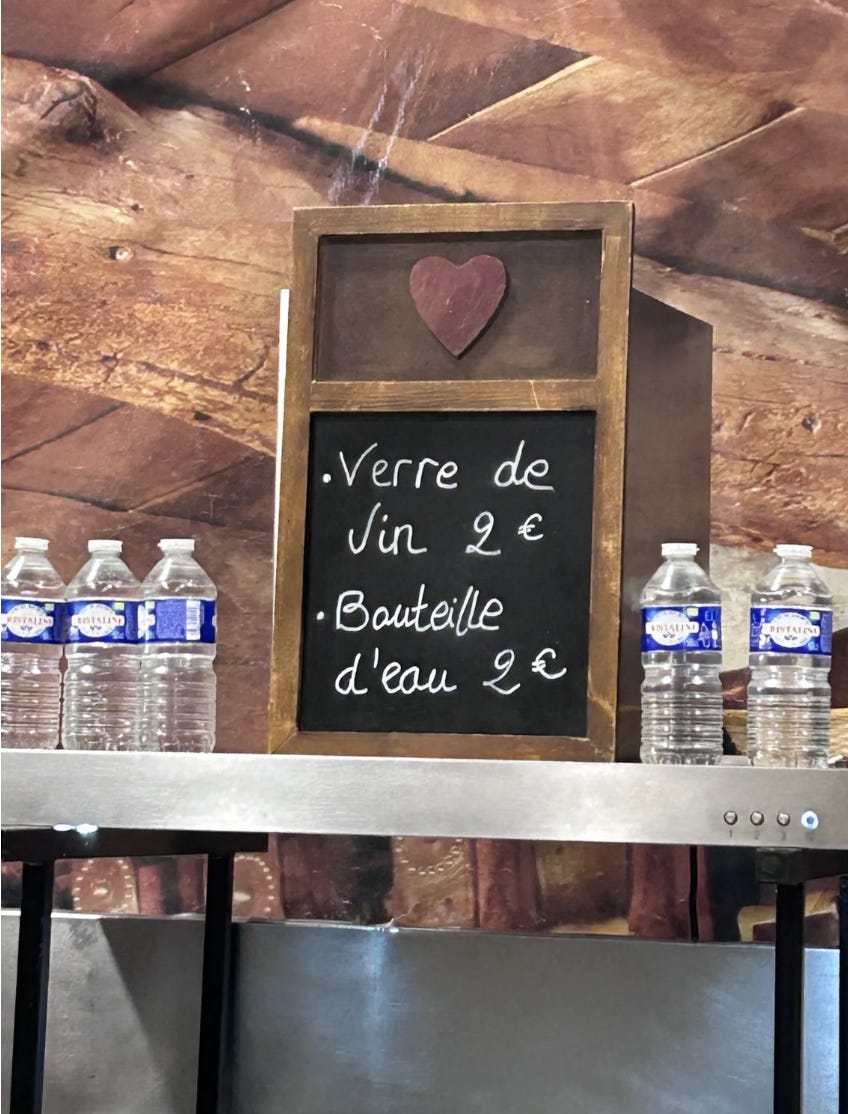
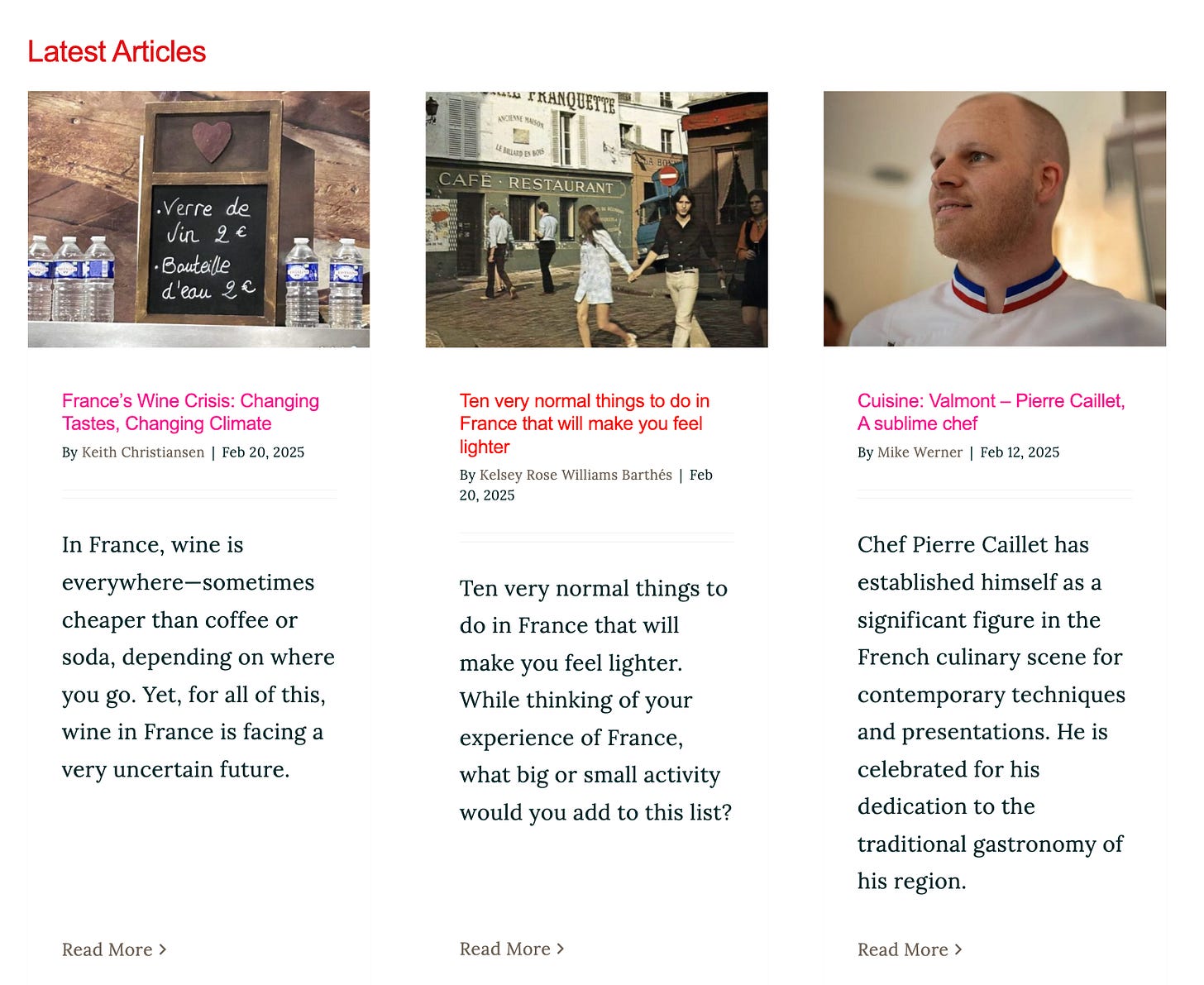
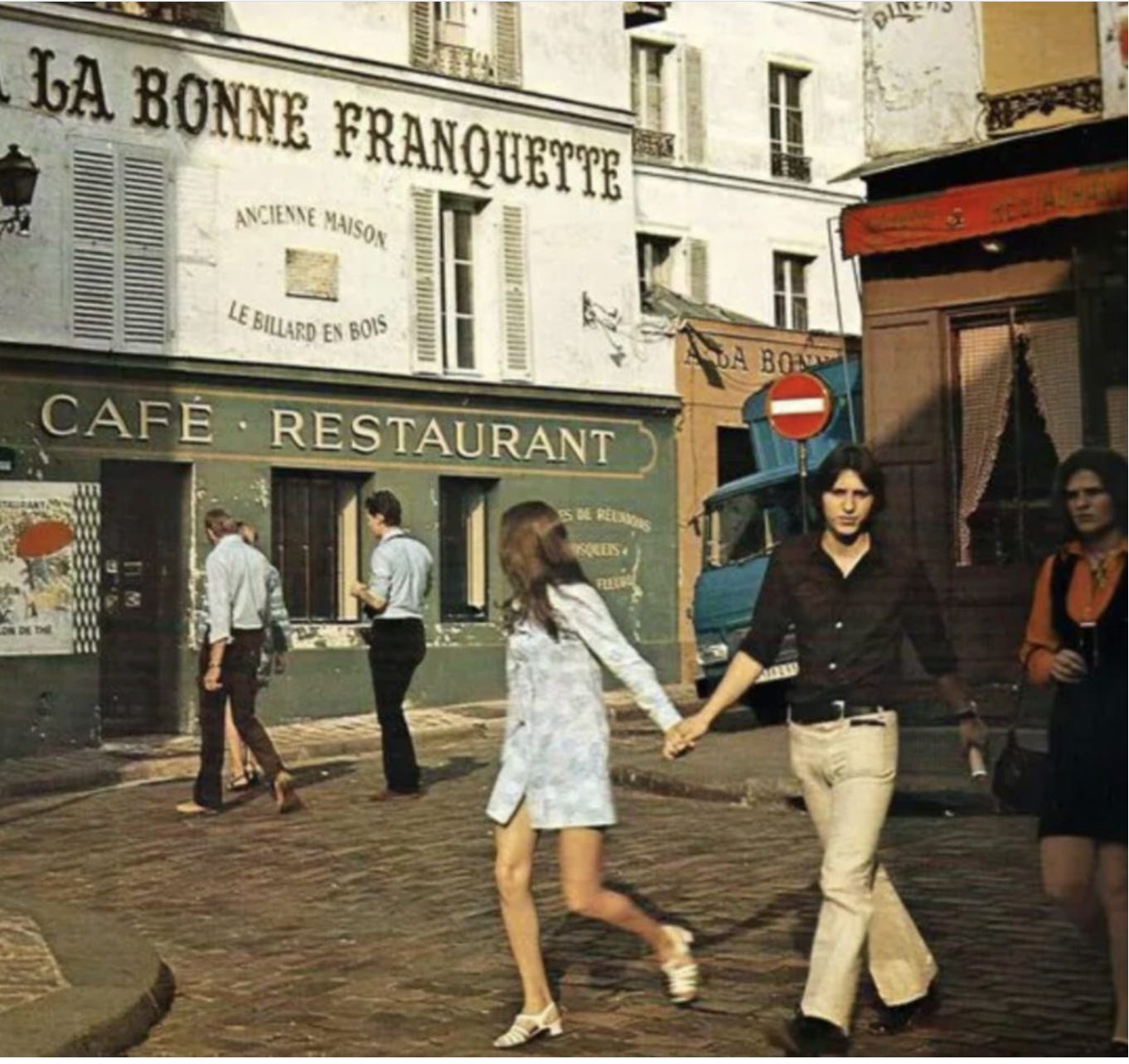

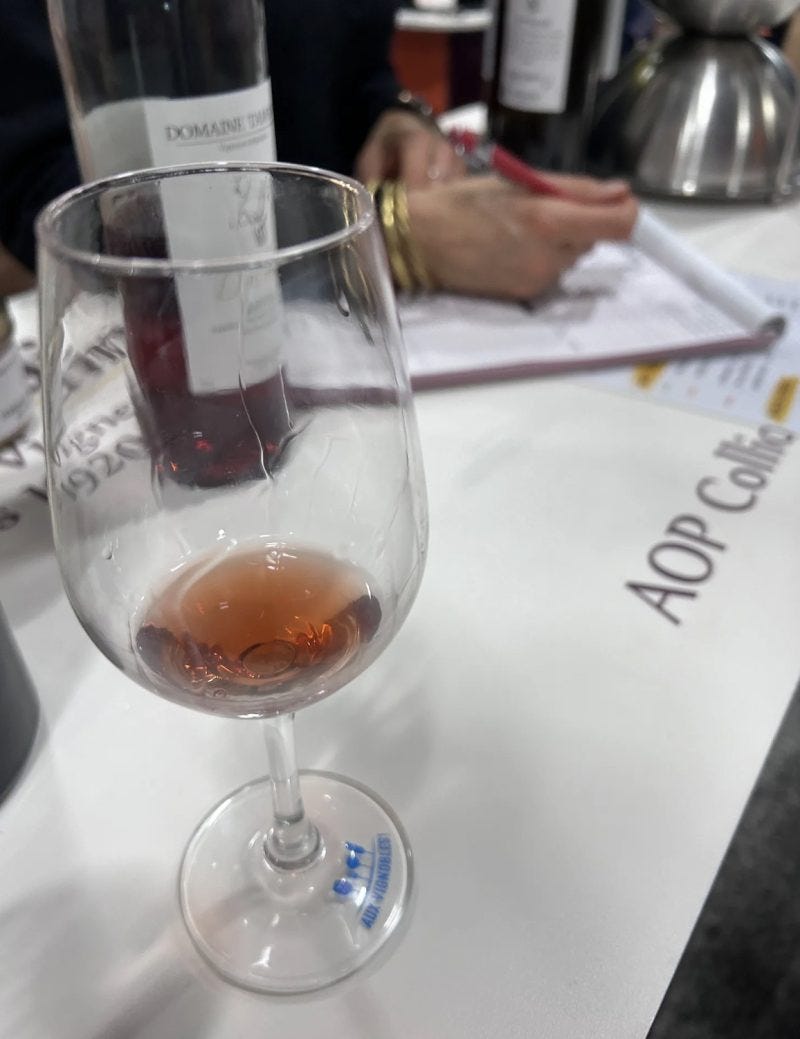
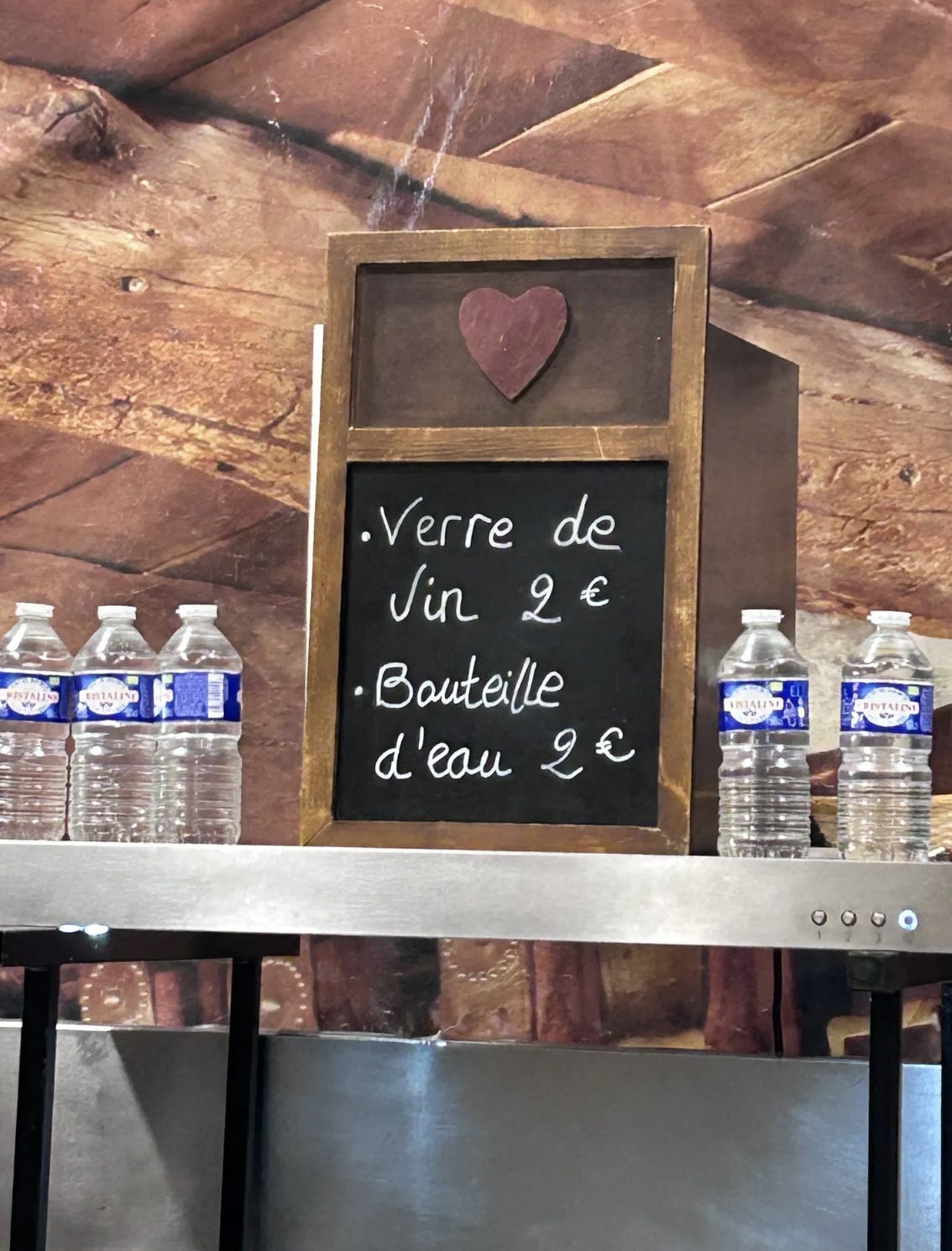
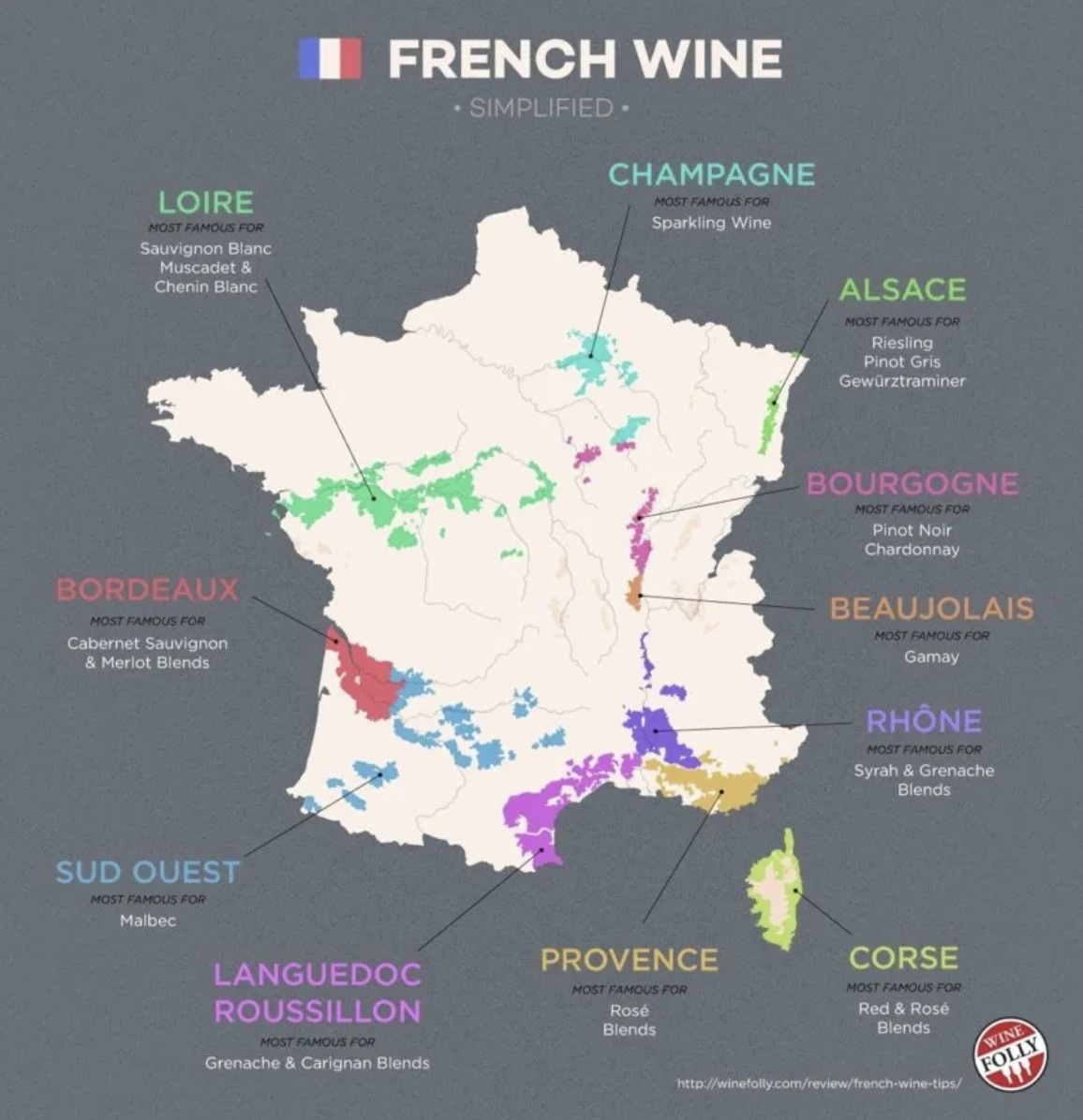
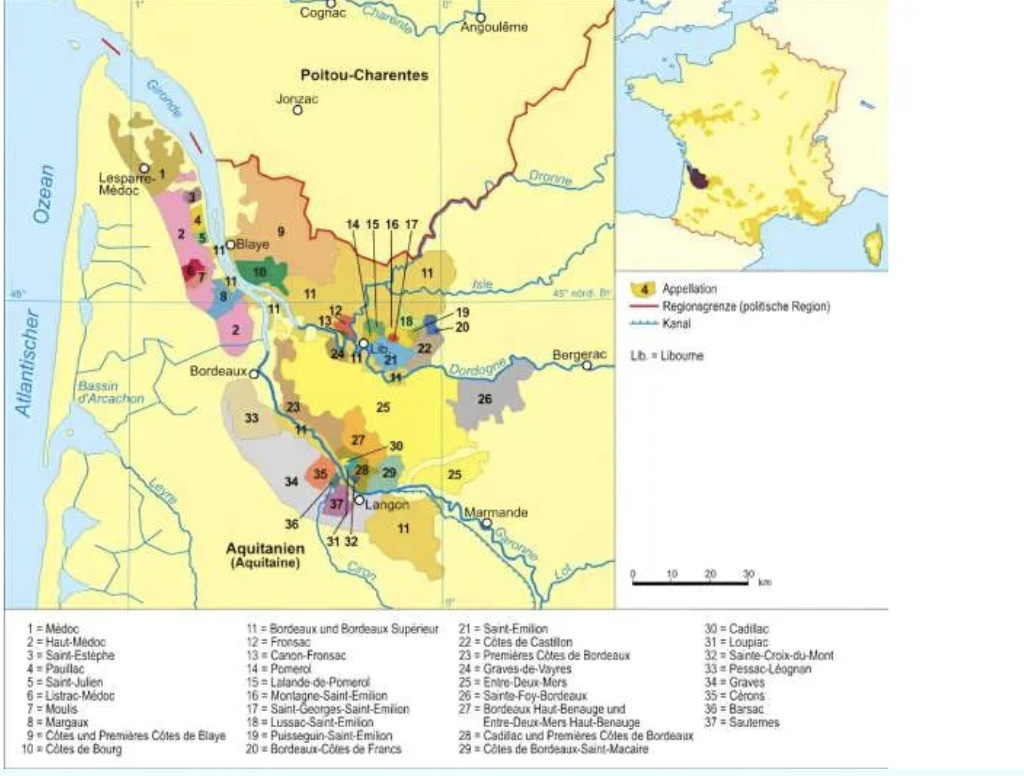
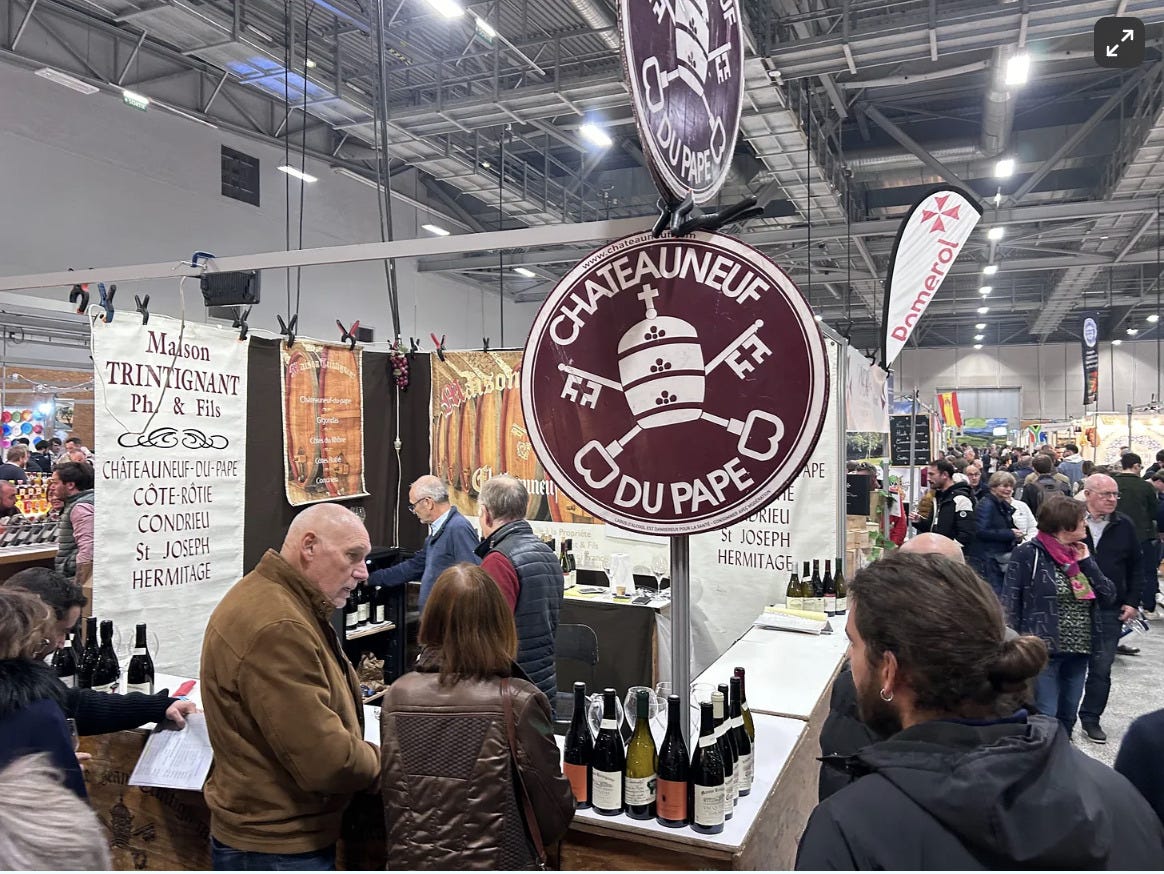
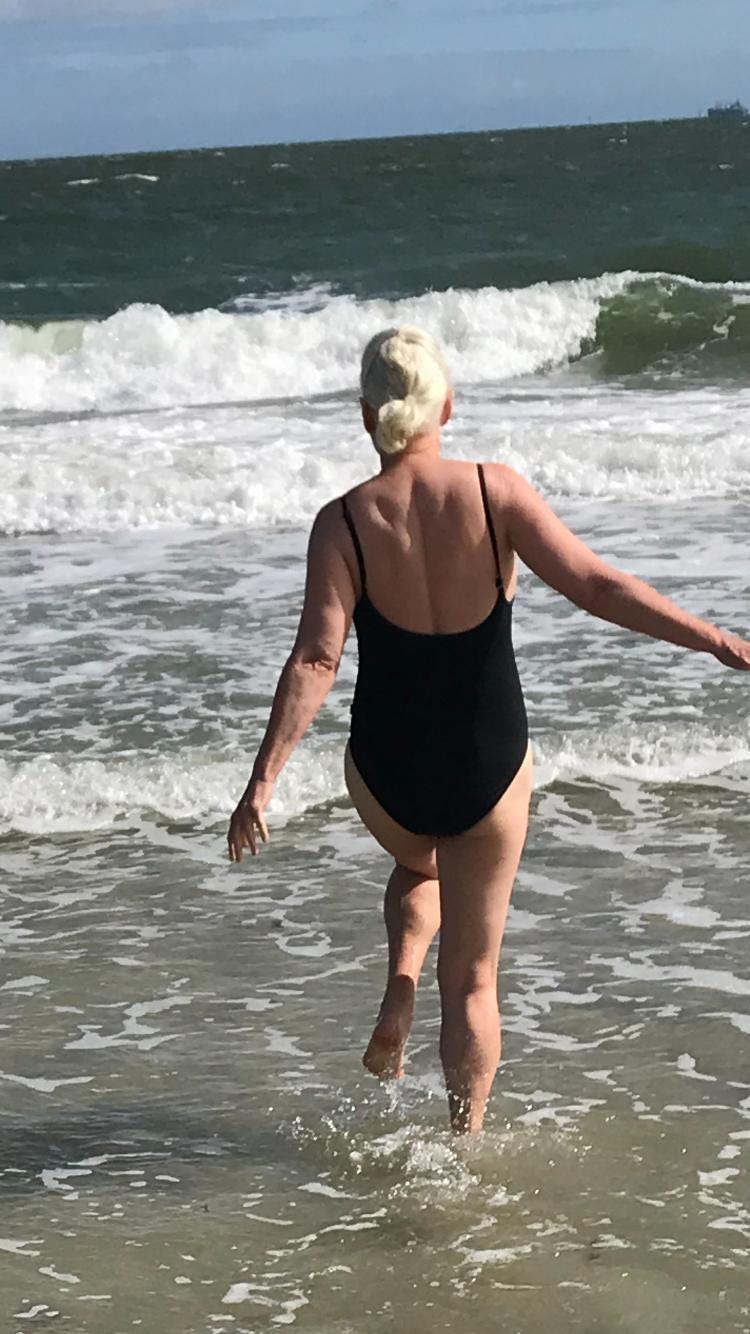
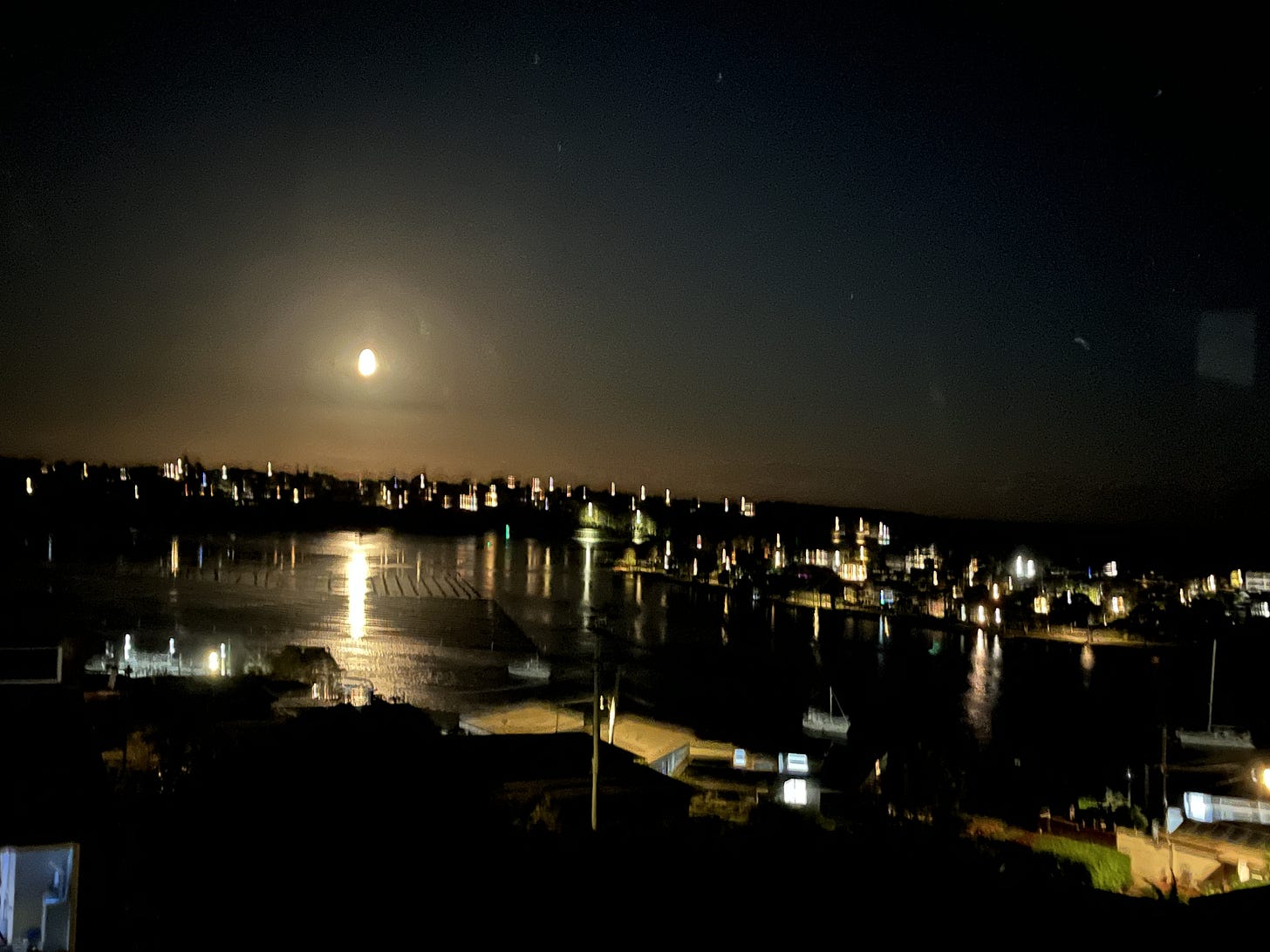

To Kelsey's list, I would add going to a small AND lesser-known museum, and also seeking out a square or esplanade that has recently been redone in order to soak up a mix of historical and modern design, which the French are usually, although not always, good at.
And I'm so happy to see Keith here! He's so prolific and writes about so many lesser-covered topics.
I've seen over the years how drinking habits are changing: drinking less, of course; the growing popularity of beer; and the arrival of decent cocktails, something French cafés weren't that good at decades back. Global warming is a big climate issue, but also the related "crazy weather": late frosts and hailstorms, for example. The Cahors vineyards, for example, have been struck very hard by late frosts.
Judy, glad you you enjoyed your vacation and thank you and the writers for this great issue of Le Bulletin!
One question I have for everyone is about the word crisis. Is that word overstating the situation? Or is it more of a challenge? What’s your view?
Judy